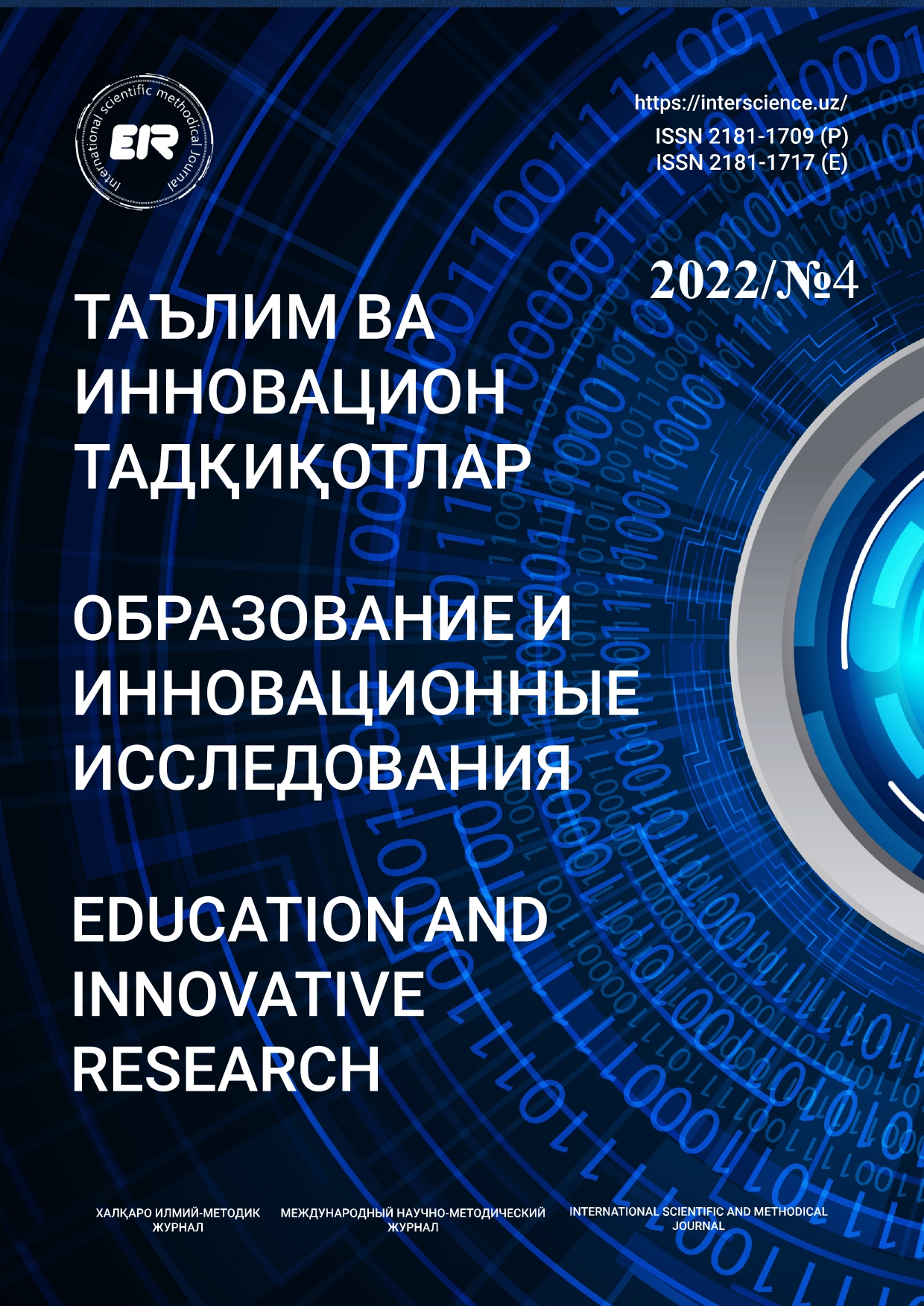РОЛЬ СИСТЕМНОГО ПОДХОДА В МЕТОДИКЕ ПРЕПОДАВАНИЯ РУССКОГО ЯЗЫКА
Арипова Халима Ариповна, кандидат педагогических наук, доцент Бухарского государственного университета
Аннотация
В статье рассматривается роль системного подхода в методике
преподавания русского языка, где в рамках этой дисциплины понятие система
(системность) является одной из базисных категорий и трактуется как совокупность
основных компонентов учебного процесса, определяющих отбор учебного материала для
занятий, форм и способов его подачи на уроке. Особое внимание уделяется некоторым
проблемам и особенностям работы над русской лексикой на занятиях по русскому языку
в иноязычной аудитории. В рамках мировых интеграционных тенденций в сфере высшего
образования произошли изменения во всех взглядах на сущность языкового образования
и на его роль в развитии индивидуальности. Изменились взгляды и на иностранный
язык как учебную дисциплину. По мнению учёных, иностранный язык - это прежде
всего образовательная дисциплина, и необходимо разрабатывать технологии обучения
иностранному языку. Интегративные тенденции всё больше находят отражение
в методических концепциях, а интегративные знания - это обобщённые знания из
совокупности учебных дисциплин, обладающих общностью понятийного аппарата,
образующих целостную систему и имеющих междисциплинарную структуру. Русский
язык - ведущая составляющая образования и путь к познанию мира. Как учебный предмет
и уникальная культура, русский язык даёт инструменты познания мира и разнообразный
опыт: знаниевый опыт, практический, опыт творческой деятельности и опыт
эмоционально-ценностных ориентаций. Русский язык, его высокая роль, достаточное
владение им является условием самоопределения и самореализации. Как канал общения
русский язык продуктивен для личности в любых коммуникативных условиях.
Библиографические ссылки
Ахманова О. С. Словарь лингвистических терминов. М., 1966. 688 с.
Балыхина Т. М., Игнатьева О. П. Словарь терминов и понятий лингводидактической теории ошибки. М.: Изд-во РУДН, 2006. 121 с.
Булыгина Т. В., Крылов С. А. Система языковая // Большой энциклопедический словарь. Языкознание. М. : 2008. 293 с.
Дейкина А. Д. Преподавание русского языка в школе и вузе в контексте межкультурной коммуникации: материалы междунар. науч.-практ. конф. М. : МПГУ ; Ярославль : РЕМДЕР, 2010. 516 с.
Колесникова А. Ф. Проблемы обучения русской лексике. М. : Рус. яз. 1977. 92 с.
Левицкий Ю. А. Общее языкознание: учеб. пособие. Изд. 4-е. М. : ЛИБРОКОМ, 2009. 266 с.
Общеевропейские компетенции владения иностранным языком: изучение, обучение, оценка. Страсбург, 2001; Русская версия. МГЛУ, 2003. 8 с.
Пулькина И. М., Захава-Некрасова Е. Б. Учебник русского языка для студентов-иностранцев. Изд. 6-е. М. : Дрофа, 2003. 608 с.
Практическая грамматика русского языка для зарубежных преподавателей-русистов / под ред. Н. А. Метс. М., 1985. 240 с.
Покровский М. М. Избранные труды по языкознанию. М., 1959.
Розенталь Д. Э., Теленкова М. А. Словарь-справочник лингвистических терминов : пособие для учителя. 3-е изд., испр., и доп. М. : Просвещение, 1985. 284 с.
Реформатский А. А. Введение в языкознание. 4-е изд. Просвещение. 2001. 536 с.
Соломник А. Б. Язык как знаковая система. Изд. 2-е. М. : ЛИБРОКОМ, 2010. 224 с.
Ширшов И. А. Теоретические проблемы гнездования. М. : Прометей, 1999. 236 с.
Щукин А. Н. Методика преподавания русского языка как иностранного : учеб. пособие для вузов. М. : Высш. шк., 2003. 334 с.





